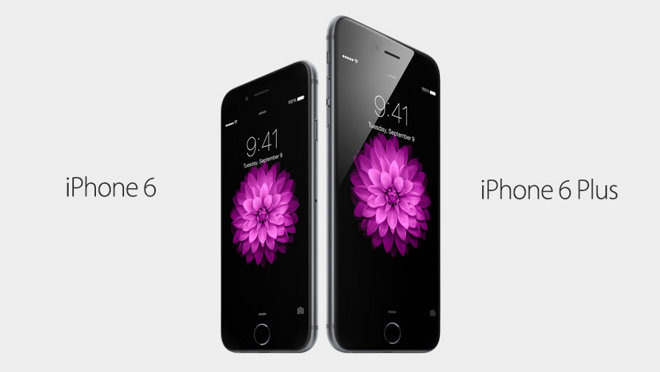A review of documents presented in court show that Apple was aware that the iPhone 6 and iPhone 6 Plus were more prone to bending than the smaller iPhone 5s.
According to a report Thursday by Motherboard, internal Apple documents referenced in a recent court decision found that Apple knew that "iPhone 6 is 3.3 times more likely to bend than the iPhone 5s, and the iPhone 6 Plus is 7.2 times more likely to bend than the iPhone 5s," according to testing by the company.
It's not clear exactly what the 3.3x and 7.2x figures relate to. A larger phone is subject to greater bend force on the device with an equal effort because of the larger size and longer distance from a flaw, as the the same effort on a smaller phone to a similar flaw. So, all other things equal, the larger phones should have been more prone to bending, prior to an "in-fill" of epoxy that the court claims was applied much later after launch.
The documents referenced remain under seal, but the judge in the case revealed these facts in a decision earlier in May.
Apple had said at the time that only a tiny number of consumers complained about the bending of the devices, and maintained a public stance that there were no engineering issues with the iPhones. Apple even took media on a tour of their testing facility.
"Touch Disease"
The "touch disease" issue reared its head significantly two years later, in 2016, when customers in larger numbers began noticing a small flickering towards the top of their screen on the iPhone 6 Plus. In November 2016 Apple reacted by launching a repair program, which offered repairs for a $149 service free. That followed reports, in August of that year, that about 11 percent of Apple Store repairs at the time were in relation to that particular issue.
Members of the repair community see a connection between the bending of the devices and the Touch Disease problem.
This led to a lawsuit over Touch Disease, from which the new documents emerged this week. The suit alleged that Apple indeed knew in advance about the problems with the iPhone 6 and 6 Plus. Judge Lucy Koh, the perennial judge in Apple-related cases, denied the suit class action certification earlier this month.
 Stephen Silver
Stephen Silver

-m.jpg)






 Andrew O'Hara
Andrew O'Hara
 Wesley Hilliard
Wesley Hilliard

 Malcolm Owen
Malcolm Owen
 Marko Zivkovic
Marko Zivkovic

 Chip Loder
Chip Loder
 Christine McKee
Christine McKee



-m.jpg)




71 Comments
I still know 5 people who use the iPhone 6 Plus , so I call BS on that.
If you can’t use common sense with your electronics, you don’t deserve one .
If your behind is that big , for crying out loud, please don’t sit on your damn phone.
3.3 or 7.2 compared to what? The real issue should be how many iPhones out of, say, 100,000 suffered from bending. 3.3 times 0.00001 is still a very small number.
Sounds like they’re playing with numbers to come up with a figure that looks bad.
For example, Note 7 fans said only 1 in 10,000 phones had an overheating issue. Seems reasonable, except that the industry average is closer to 1 in several million.